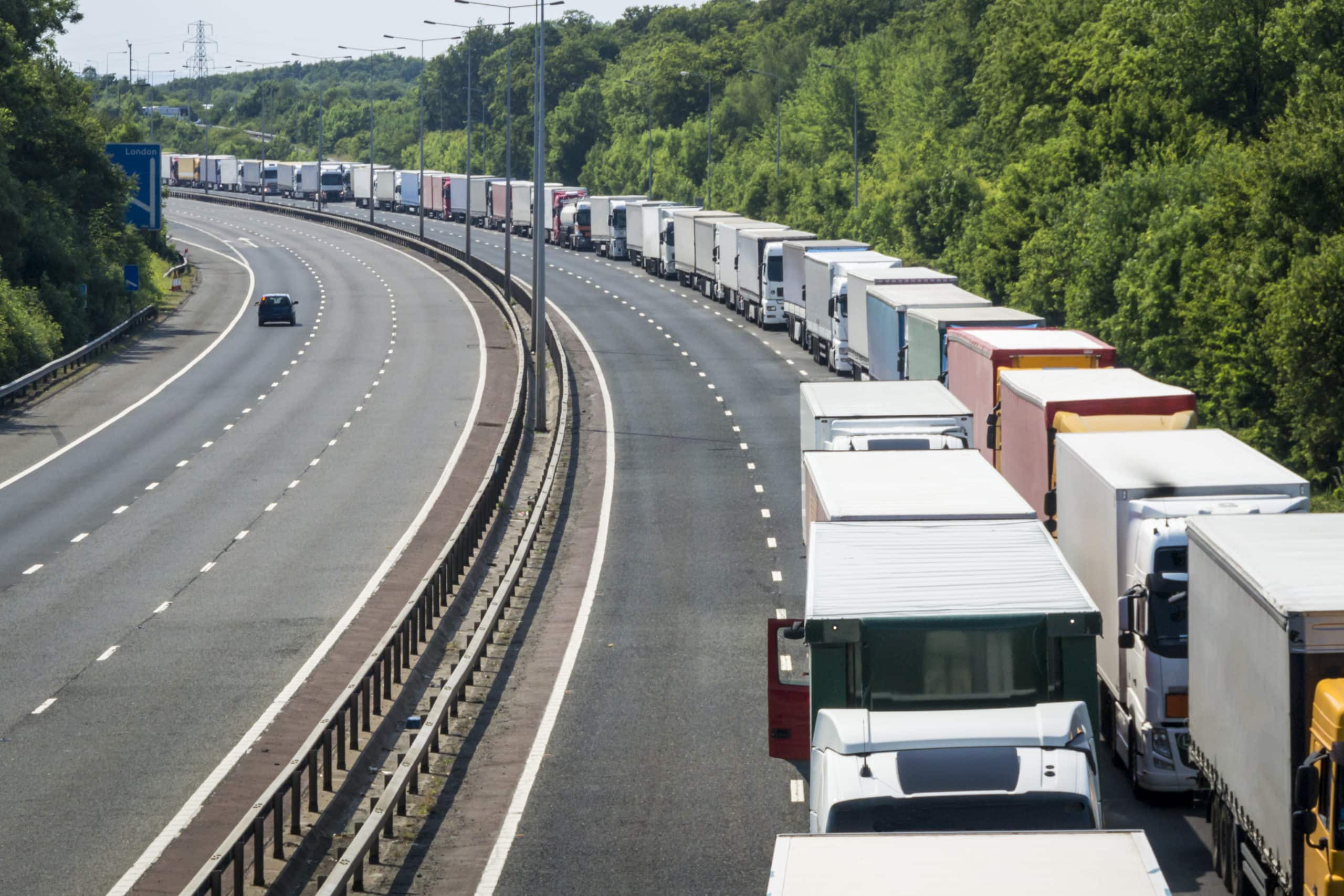
All eyes have been on the UK for the past several months, as companies and individuals alike wonder what kind of shockwaves Brexit will send across the continent.
Multiple times throughout this past holiday season, border delays due to both COVID restrictions and new customs procedures led to massive backlogs at the borders and ports of entry to the United Kingdom. We had hundreds of trucks backed up at the border, hundreds of truckers who weren’t able to spend Christmas with their families, loads spoiled, appointments missed, and millions in wasted pounds and euros alike.
Within the transportation industry, all these changes and disruptions are having a massive impact on one group in particular: Europe’s smaller carriers.
Small carriers make up the backbone of the transportation industry all across Europe. Yet many of these companies — most of which have fewer than 50 trucks in their fleets — are struggling due to the tremendous volatility in loads being cancelled, delayed or rerouted.
COVID and Brexit are only complicating the situation, and it’s trucking companies that are feeling the brunt of the impact, at least for the moment. Over the past several weeks, there’s been little to no disruption in the amount of freight making it into Great Britain via the ports and container ships that collectively represent roughly 60% of the country’s import volume. However, with key terrestrial border crossings like the Eurochannel experiencing massive backlogs, first due to Britain’s new coronavirus strain, and later thanks to complications surrounding the Brexit rollout, means that available income for already-struggling trucking outfits is drying up further.
As of late last year, 15%, or roughly 60,000 carriers, were at risk of going under completely. If this were to happen, it would not only cause a massive loss in jobs across the continent and the potential for extreme consolidation within the sector; It would also severely disrupt the ability of companies in every industry to carry out their daily operations — an effect that could easily spiral completely out of control.
Especially with a potential recession impending due to the COVID lockdowns, the situation is growing grimmer and grimmer the further we get into 2021.
One of the best ways that these smaller organisations can get through this difficult time is by investing in the technologies that will enable them to both better compete with larger corporations, as well as to optimise their own operations. GPS tracking, for example, can help many smaller carriers better compete with their larger counterparts. However, only about 70% of carriers in Europe have GPS tracking. This means there are still roughly 2.4 million that need some help in getting up and running.
It can be very difficult for smaller operations to set aside the resources to invest in new technologies even in the best of times. With revenues drying up and operating costs rising through the roof these past several months, even getting a small number of trucks and trailers fully equipped with GPS devices can become an impossibly difficult task.
I recently spoke with a major chemical manufacturer about supply chain visibility. This shipper moves about 100,000 loads annually, and going forward they told me they will no longer be giving loads to carriers who are performing below 80% GPS tracking consistency. We’ve heard similar statements from multiple major shippers at this point, both in Europe and beyond. This means that there’s an opportunity for companies to stand out not because of the size of their operations, but by the sophistication of their technology. As we’ve said in the past, new technologies can actually level the playing field for smaller carriers, since it’s often easier to implement a new technology within a smaller operation than it is for one which has many more assets to worry about.
Because of this, many carriers currently choose to track via the driver’s personal cell phone, in the absence of having any other solution in place. There’s a lot of cell phone tracking currently going on in Europe, and it’s far from optimal or sustainable for the long-term. There are so many national borders in Europe, and each one has its own data charges for smartphones. As soon as they cross the border, their data charges increase significantly, and there’s no way the driver’s company is going to cover that. So many drivers simply switch off the tracker for the duration of the load.
To help solve this issue, FourKites is working with some of Europe’s largest GPS hardware providers to help smaller carriers get up and running GPS tracking technology at both a hardware and a software level, allowing them to differentiate their business and start to reap the benefits of digital connectivity for their own operations.
. . . . . . . . . . . . . . . . . . . . .
There’s no question that the situation Europe’s smallest carriers are facing is a difficult one. On the one hand, expectations are rising on the part of large shippers and their customers, even as very low margins on the carrier side often prohibit all but the largest players from investing in the hardware and technology that’s actually needed to bring across this change.
The United States is relatively unique in its push for mandatory GPS tracking throughout the continental transportation sector. Here in Europe, we won’t be seeing any similar mandates coming along until at least 2025. Our hope is that we can help resolve this situation in a way that benefits all parties.
Contact us to learn more our supply chain visibility solutions in Europe.